This post may contain affiliate links, which means I’ll receive a commission if you purchase through my links, at no extra cost to you. Please read my full disclosure for more information.
“Tell Me Lies” follows Lucy Albright’s journey as a student at a small Californian college, miles away from her mother and her preppy life in Long Island. Amidst new friends and college parties, Lucy meets the enigmatic Stephen DeMarco. From there, her life dips into troubling territory.
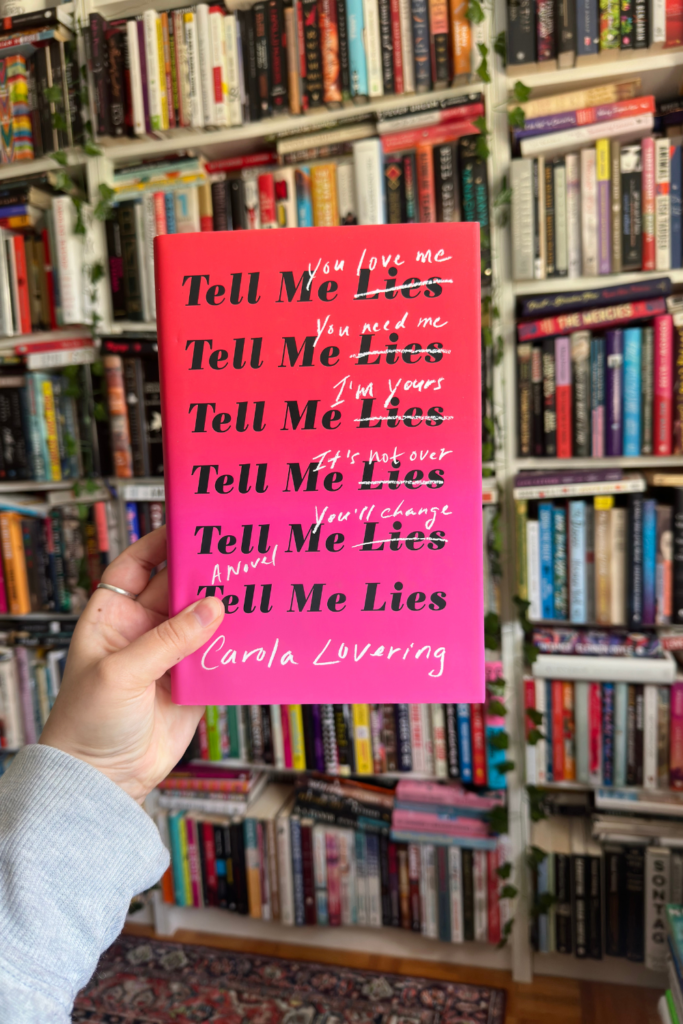
- Date finished: September 9th, 2024
- Pages: 384
- Format: Hardback
- Form: Novel
- Language read: English
- Series: Standalone
- Genre: Romance | Contemporary | Thriller
Buy “Tell Me Lies”
“Tell Me Lies” spans a few years between California and New York, during college and post-college, following both Lucy and Stephen’s respective lives. As the reader, we glimpse into the remorseless mind of the real Stephen and the extent of his dangerous manipulations. We also watch Lucy’s entanglement that will lead her down a path of self-destruction, self-discovery, and reconciliation.
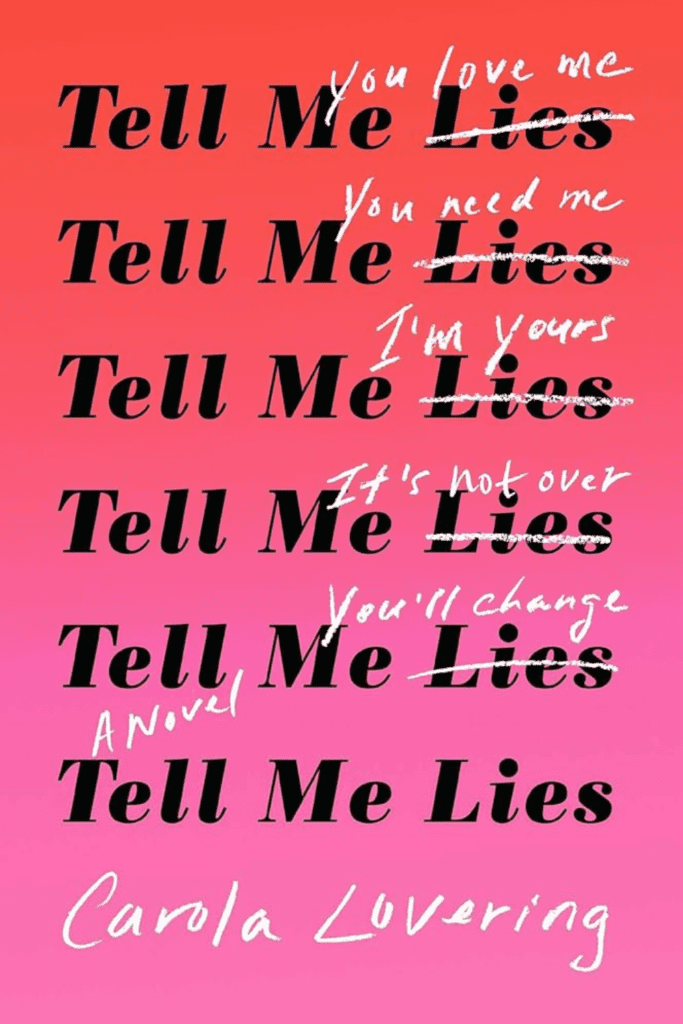
I’d like to preface that “Tell Me Lies” is categorized first as a romance before a thriller. But don’t be fooled, It’s not a book about romance, it’s a book about abuse and manipulation in a ‘romantic’ relationship. This irks me so much. Because I would love for books like these to be marketed more accurately. However, it is a book about understanding what real love is not.
If you’ve never encountered a person like Stephen DeMarco before, count your sweet blessings. In my opinion, it is a great surprise to me that Diana, Lucy, and Alice did not suffer from a nervous break or had any severe suicidal ideations.
I did catch Lucy’s eye, though, across the room, and I held her gaze for a couple of seconds. She looked at me with an expression mixed with interest and fear, like I was going to do something terrible to her. But when I smiled, her expression softened. That was when I knew. It’s usually fairly easy to tell, but with Lucy I knew for sure. There was something about her, a fragile sense of blind conviction. I knew that she would trust me. (p. 22)
I’m glad we get Stephen’s point of view in the book because there’s no room for speculation on the reader’s part. The girls might think that he loves them. But as the reader, we know he’s incapable of love. All he cares is about appearances, self-pleasure, and personal comfort.
People like Stephen crave power and corruption. It is no wonder he wants to become a lawyer.
I was reading about the guys on the “30 Under 30” list in Forbes, about how they climbed the corporate ladder quickly and effectively. I’ve always known that I wanted to be a lawyer, and I know I’ll make a good one. Everybody says do what you love, and I love the law. It’s fun-it’s like a game, the way you work your way around the different constitutional limits and push the boundaries to work in your favor. People like to speak about justice as some fantastical idea, some invisible measure of what is “right,” but justice is following a fair procedure-that’s all. In that sense, the most successful lawyers craft justice. They configure it.
What many people fail to understand is that the world is carved by nature’s laws, not moral values.
Plus if there’s one thing I’m sure of it’s that I’ll make a shit ton of money. (p. 30)
The tools in his psycho-emotional torture arsenal are: love-bombing, information gathering, forced intimacy, lying, cheating, gaslighting, discarding, etc.
He keeps an open door to keep coming back and taking as much as he can from the women he dates, he’s calculated: “Despite her threatening declarations, she would never have the final call—I made sure of that.” (p. 30)
At first, he makes them feel special. He calls them pet names (e.g., Princess Diana, Lucy in the Sky with Diamonds, Alice in Wonderland.) It’s all a torrid game. Once he’s bored and can’t get more of what he wants, he’s out:
At one point I did adore Diana, but the adoration stage never lasts long. What I’ve come to learn and what most people fail to understand is that love is a choice. If you assess the worth of your relationship solely in terms of your feelings it is likely to fail, or at least be extremely short-term. You cannot go on having these “feelings” for someone forever. With girls, the exciting part is winning their affection. That’s the fun. Then you have to choose who you’re going to love, backed by the reasons why. This may sound a bit calculated, but in all honesty I can’t stand being single.
I’ve always found life to run much more efficiently with a girlfriend. p. 92
I love that the author made Stephen out to be unattractive. This just further proves how he relies on charm, persuasiveness, and skillful manipulation, as well as stalking and invading privacy to get what he wants. He studies his victims and temporarily morphs himself into the ideal partner to entrap them and make them trust him:
When I decide I like someone, my first step is to gather as much information as possible about every aspect of her life in order to more closely resemble her ideal partner. (p. 32)
An image of Stephen DeMarco in his red bathing suit flashed across my mind. Hairy, overweight, crass. Sure, handsome in some obscure way, but I hadn’t felt attracted to him. Had I? I couldn’t remember. (p. 45)
Stephen being self-aware makes the story more terrifying. We come to understand that from childhood, he’s justified being the way that he is. Having an absent drunk mother, Stephen remains neutral towards his feelings. We can see that he’s different from his siblings, which leads us to believe that this could be a trauma response. Yet it still doesn’t absolve him from guilt and responsibility, because he knows he’s morally reprehensible. The man simply does not care:
Don’t make the mistake of thinking I’m your average scumbag. It is not like that. I understand that by “moral” standards I am fucking up.
It’s not that I’m heartless; I just know this type of situation is fixable.
People always say that you can’t have your cake and eat it, too, but you can. I know what girls in Lucy’s position want to hear, and I can provide that. More flattery doesn’t make the girl feel better, just addicted, and then you’ve hooked her because she continues to be hungry for that certain category of feedback. p. 97
Now I know this is less of a review and more of a character analysis and I’m okay with that because I found this book – and Stephen’s character – fascinating and disturbing. On my reread, I’ll come back and talk about Lucy’s character development (considering her chapters compose most of the book.)
Whether Stephen DeMarco is a narcissist or sociopath, there’s no question that he is also very much a man that profits from the patriarchal system: using women for his many needs and seeing them as interchangeable objects he can manipulate and mold to fit his image. And men like Stephen get away with things like he got away with Macy’s death, applying to law school despite his criminal record, etc.:
She closed the door and sat down next to me on the couch, and it was already waterworks central. Porn would have to wait, but that was okay. Crying girl next to you on the couch leads to sex, regardless of the circumstances. I swear. Ask any guy. (p. 31)
The reality is, you just need someone to team up with. Marriage is a business deal, essentially. You save money on things like taxes and health insurance, you obtain a sense of security and social normality, and, of course, every man needs a woman to carry his children.
I’ll probably just marry whoever I’m dating when I’m twenty-seven of twenty-eight and call it a day— it doesn’t really matter who the chick is, if you think about it. I’s just about taking that next step in your own life. There’s no way I’m gonna be some loner who’s still single when he’s thirty. p. 212
Additional thoughts (book to TV show adaptation:)
Show Stephen is horrible but seems a bit sympathetic. He’s still a liar, manipulator, gaslighter, cheater, murderer, and even a blackmailer. But he does seem to care at times for his family members and friends – and experiences guilt at Macy’s death. Don’t get me wrong, he’s still an opportunistic piece of shit that will never take accountability. But I was shocked (or fooled or both!) at the differences they’ve incorporated in the show.
“Love—real love—isn’t something you construct or hope or imagine or plan for the future. Love is something you live and feel in real time, in every single moment, big or small. It’s reciprocal and often unglamorous. But we bank on it because it’s what gives life meaning.”
“People always talk about realizing they’re in love during the happy moments, but I think you realize it in the bad ones. The ones that knock you off center, scaring you when they prove that no matter what kind of logic is in your head, it’s what’s in your heart that determines fucking everything.”
⭐⭐⭐⭐⭐

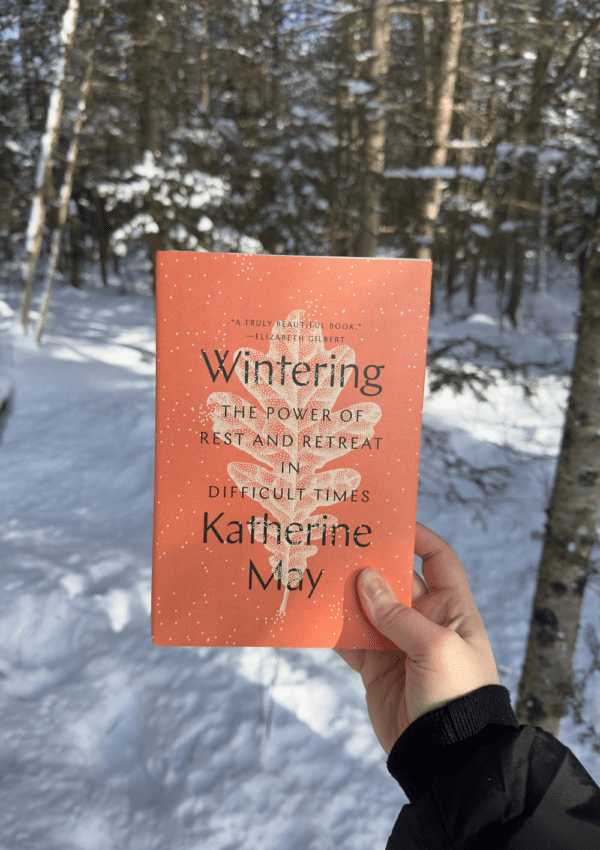
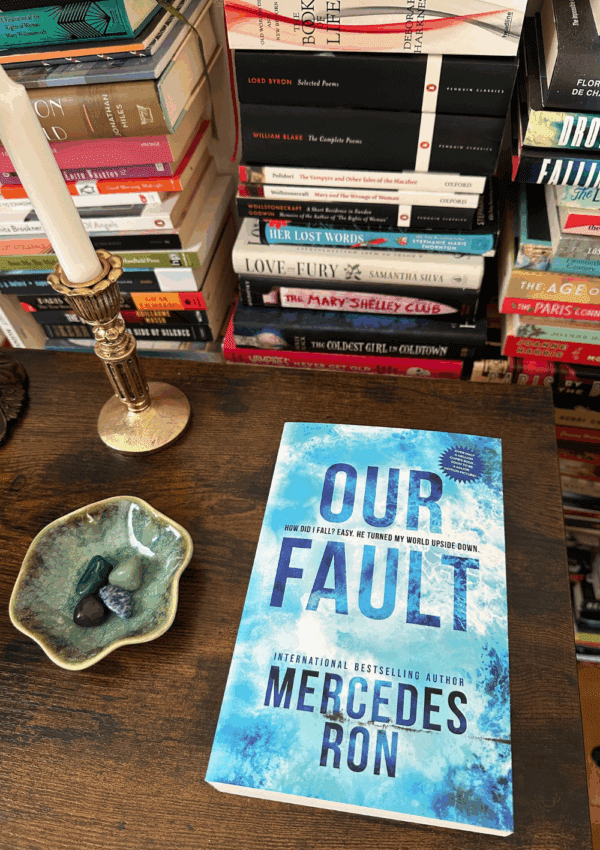
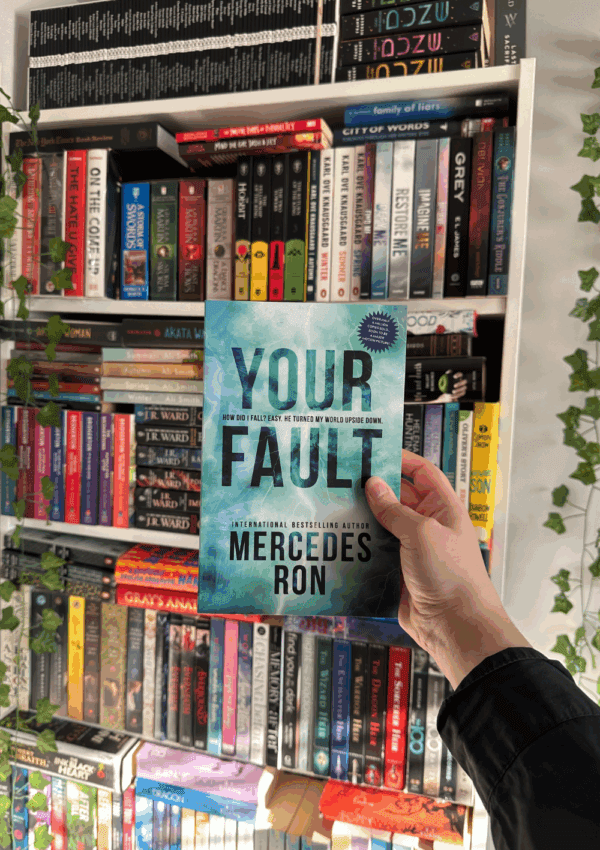
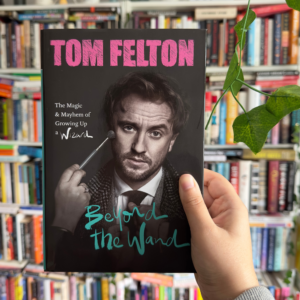

Leave a Reply